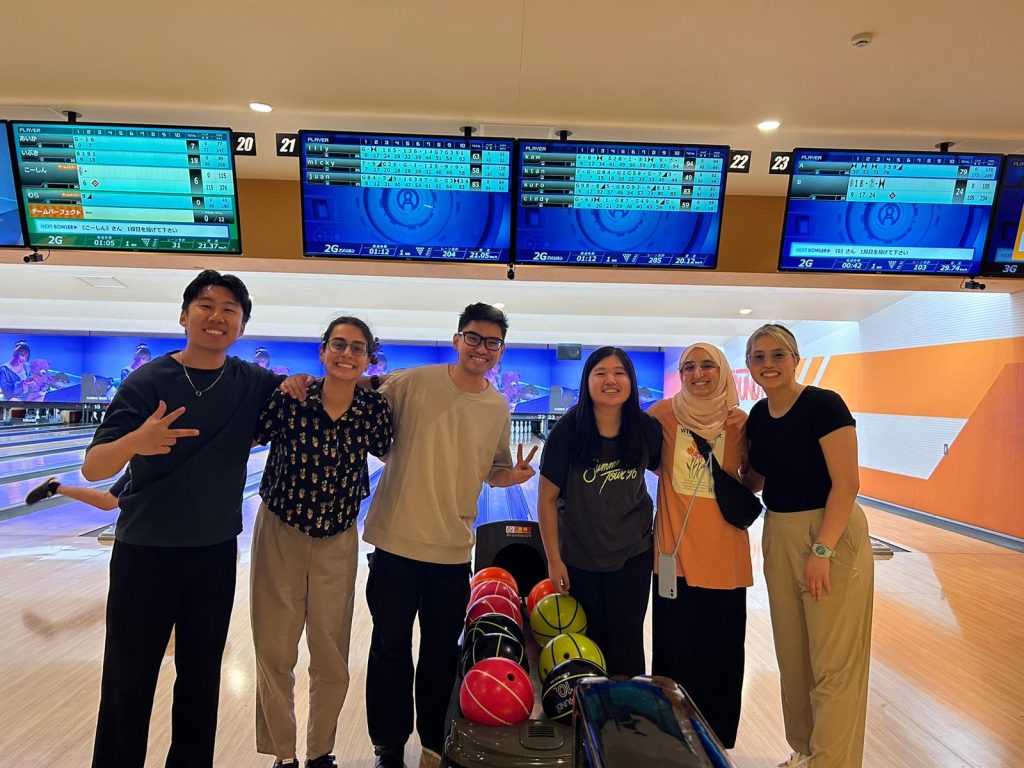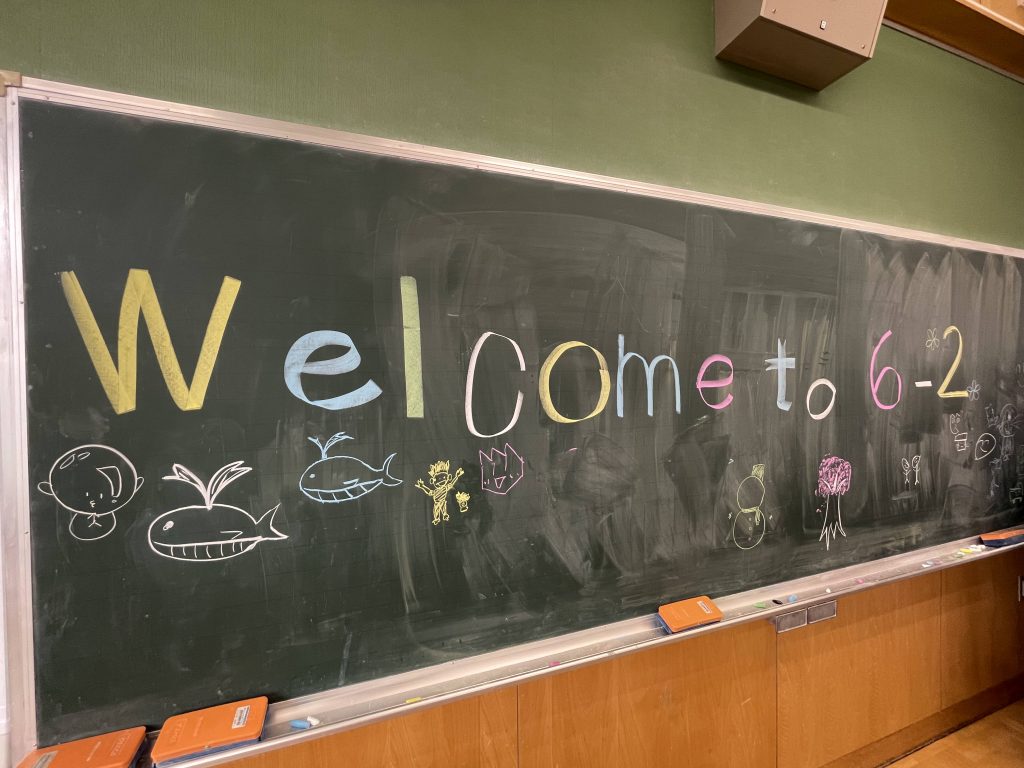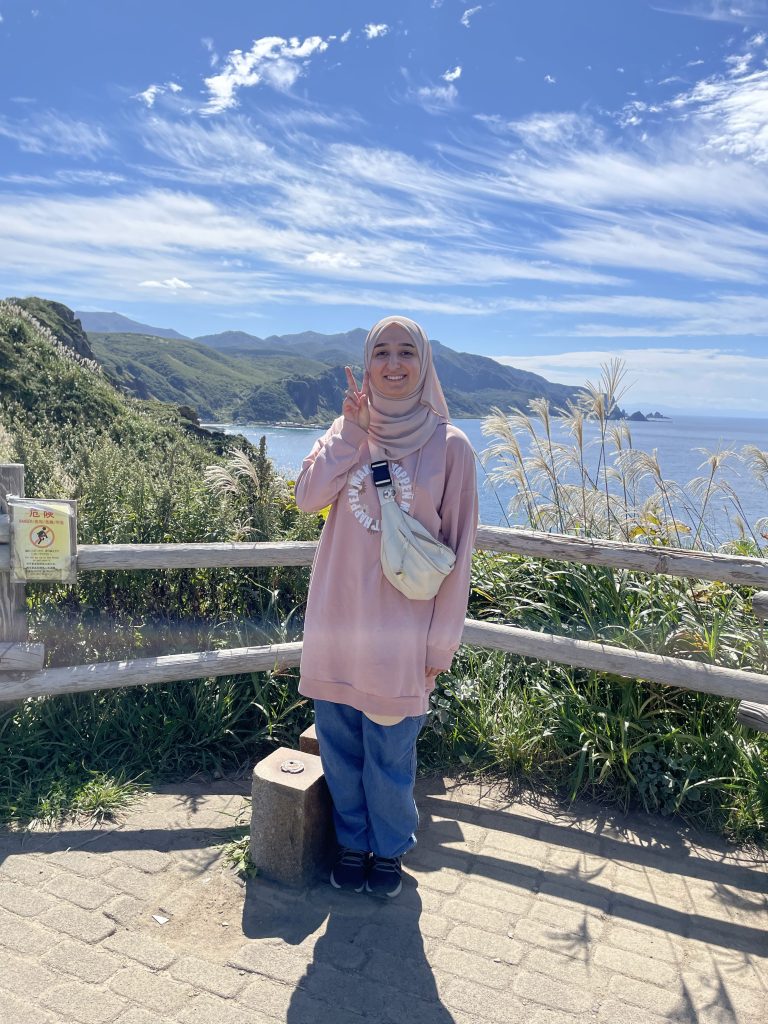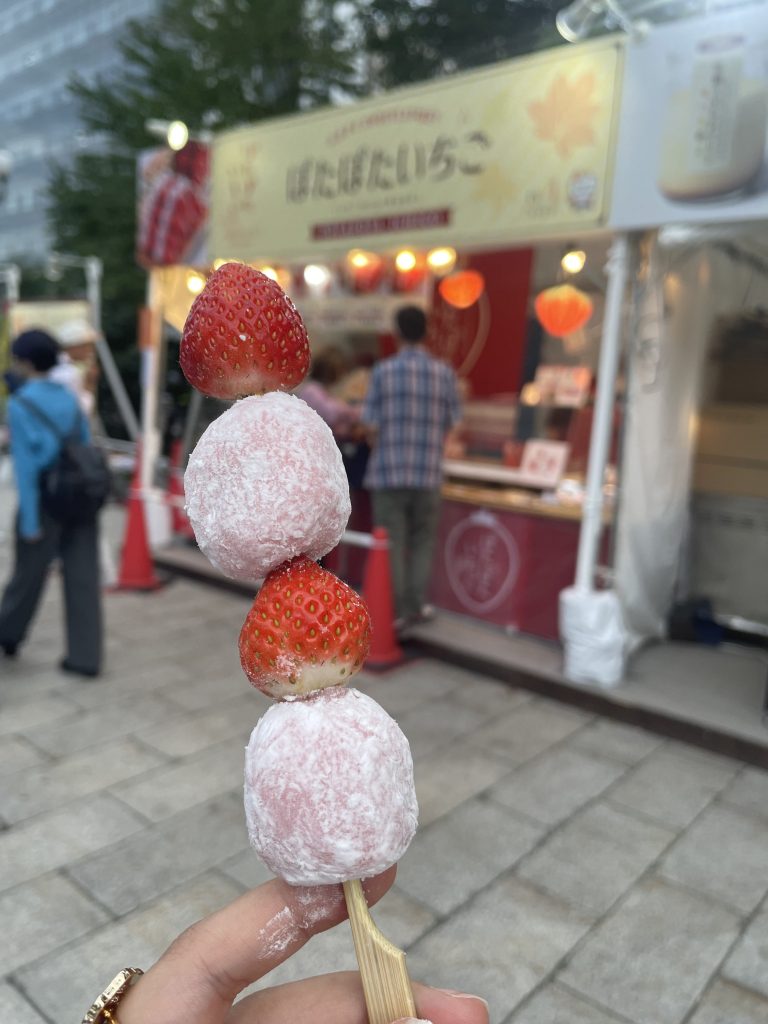My first two weeks in Sapporo have been a rollercoaster—exciting, nerve-racking, fun, a little scary, but most of all, eye-opening! Participating in this program allowed me to experience many of my firsts: my first time solo-traveling, my first time getting lost in an unfamiliar city by myself, my first time living alone, etc. I am so grateful that I experienced all this in Japan thanks to TAB!
One of the most important things I have learned is how to ask if certain ingredients have been used in cafes or restaurants. As a Muslim, I have many things that I cannot eat (like pork, non-halal meat, alcohol, and many types of seafood). If you also have food restrictions, whether it be because of allergies or personal beliefs, I suggest learning the names for those in Japanese or asking someone (like hotel staff) to write it down for you in Japanese. That way, whenever you go to a restaurant or cafe, you can tell or show the staff what you cannot eat. Much easier than trying to get them to understand it in English!
In terms of the program itself, I appreciate the liaison Yagi-san greeting us with enthusiasm whenever we have Japanese lessons at HUE. A big thank-you to Mizutani-sensei, our Japanese teacher, for teaching me how to say that I cannot eat something in Japanese. I am especially grateful to Oga-sensei for accompanying us on our school visits and for answering all our questions about Japan schools. The tutors have also been extremely helpful during school visits and are overall very fun to talk to; I really enjoy their company! And thank you to all the teachers and the students in the schools for welcoming us with such warmth. Everyone’s positive attitude definitely makes the experience better!
Speaking of school visits, last week I had the chance to visit two elementary schools here in Sapporo. I was surprised and intrigued by the similarities and the differences they had to Canadian elementary schools. Here are some of them:
- Students clean the school during lunch break, so there is no janitor (there is a caretaker to clean areas students cannot and to care for the plants)
- Home economics (a class where students learn how to cook, wash clothes, sew, and other household skills) is mandatory for all students
- Moral education is also mandatory class for students (haven’t had the chance to see it but I hope to)
- Students have a lot of time in their schedule dedicated to arts & crafts alone
So far, the experience has been a blast! I hope to continue learning and improving myself as a person and a teacher.
Sincerely,
Kawthar Mahdi




